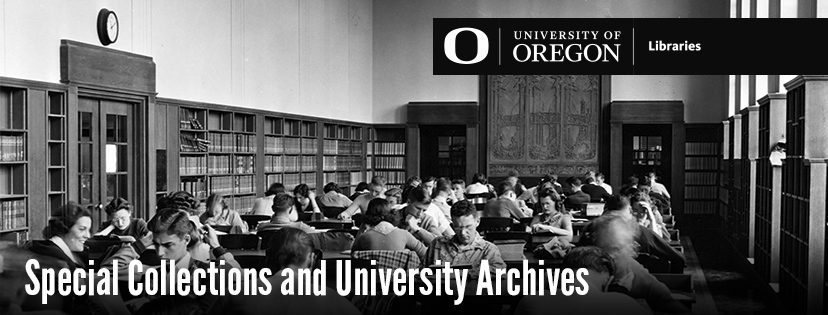April Processing Update
The Special Collections and University Archives (SCUA) archivists have been hard at work and six more collections were made available for research in April.
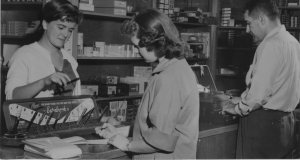
The finding aids for these, and all, SCUA collections can be accessed through our archival collections database, Archives West and the UO Libraries catalog.
Collections now available for research:
University of Oregon (UO) Sports History
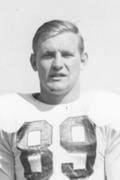
The James Berwick papers contain photographs of Berwick, who was, according to the University of Oregon Athletics Hall of Fame, “The defensive captain of one of Oregon’s greatest football squads ever…a vital cog for the 1949 Cotton Bowl team”, which was ranked ninth in the nation in an Associated Press poll. His time at UO as a three-year starter saw Berwick playing both offense and defense, earning him three letters from 1946-48, culminating in being selected to play in the Hula Bowl following his final collegiate season.
Ellen Schmidt-Devlin papers, UA 249
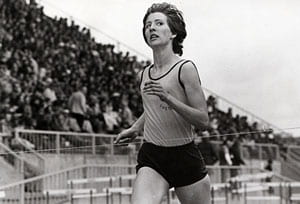
Ellen Schmidt-Devlin ran for UO (1976-79) under the mentorship of Bill Bowerman. She graduated in 1981 and spent 27 years working for Nike in marketing, primarily in Asia (Hong Kong, Japan, Thailand, and Korea) and the United States. She received her MBA from UO and was co-founder of the University’s Sports Product Management program. In 2012, she produced the documentary We Grew Wings: The Untold Story of the Women of Oregon, highlighting women’s track and field at the University of Oregon, inspired by her experience in the program. This collection is comprised of production materials related to We Grew Wings, including a full copy of the released film, raw and production footage, promotional material and related ephemera such as posters, tickets, and attendee favors.
Mary Frances Brackney papers, UA 350
Mary Frances Brackney, née Dilday, was a student at UO from 1926-1930. In addition to studying English, journalism, economics, and history, Brackney was the Day Editor of the Emerald, was active in the Zeta Tau Alpha sorority, including managing the house in her later years. This collection consists primarily of correspondence from her time at UO, but also includes a scrapbook, a photo album and other items of realia and ephemera.
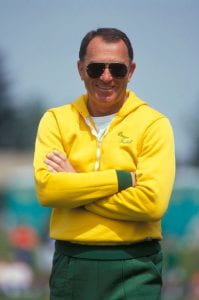
Richard Brooks (b. August 20, 1941) coached the UO football team from 1977-1994, during which time the team won the Pac-10 and played in the 1995 Rose Bowl, leading Brooks to receive several national coaching awards. After leaving UO, he coached the NFL’s St. Louis Rams from 1995-1996, moving to the University of Kentucky from 2003-2009. Brooks is credited for reviving UO’s football team and setting the stage for its rise to national prominence under future head coaches. This collection contains newspaper and publicity around his time at UO, as well as ephemera, notes and memos and photographic materials. Most of the collection dates to the 1995 Rose Bowl game.
Borthwick and Saunders family papers, Ax 016
Alexander E. Borthwick was born in 1835 in in Schoharie County, New York and enlisted to fight for the Union in the Civil War in 1861 as part of Company B, Fourth New York Artillery. Discharged on account of disability in 1862, he reenlisted in 1863 into Company C, Second New York Veteran Cavalry, where he served until he was honorably mustered out in 1865. As part of his time as a soldier, Bothwick took part in the Red River and Mobile campaign and was twice wounded, first at Marksville, Louisiana, and again at McLeod Mills, Mississippi, on the Davidson raid.
Following the War, Borthwick attended school and in 1867, traveled west, where he assisted in building the Union Pacific and Central Pacific Railways. He was present at Promontory, Utah in 1869, when the last spike was driven connecting with bands of steel from New York and San Francisco. In May 1869 he went to Nevada, worked in various mining camps, and then migrated to Canyon City, Oregon, and from there to The Dalles and Portland. Over the years, Borthwick would work as a schoolteacher, stationary salesman, railroad surveyor, county clerk and miner in Oregon and across the Pacific Northwest.
William L. Borthwick (1881-1958), was the son of Alexander E., and from 1915 to 1918 was employed in river and harbor work by the U.S. Army Engineers, later going on to work for the Bureau of Construction in Portland, Oregon. The younger Borthwick was active in politics and joined the Ku Klux Klan in the 1920s.
Leo Huberman was a teacher and educator born in Newark, New Jersey in 1903, who taught social studies, labor and economic history. Huberman served variously as Chairman of the Department of Social Sciences at the New College at Columbia University, as Labor Editor of PM, Director of Education and Public Relations of the National Maritime Union and founded and co-edited Monthly Review. Huberman wrote many books, articles and pamphlets on labor and labor history from a Marxian socialist point of view. Notable material in this collection includes testimony and papers related to Huberman’s testimony before Joseph McCarthy in Congress, his work with the case of California vs Earl King, Ernest G. Ramsay, and Frank Connor, his times working with the National Maritime Union; and documents related to Harry Bridges, including testimony in the Bridges court case with the U.S. Immigration and Naturalization Service.
This collection was processed by Lara-Marie Frick, SCUA’s History Graduate Archival Training Fellow. Read her blog about Huberman here.
